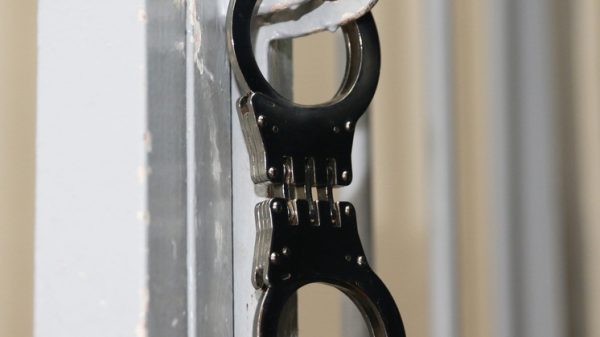 A former Royal Navy submarine captain said the video does not show the carbon dioxide removal system known as scrubbers inside Titan. Credit: Anadolu Agency
A former Royal Navy submarine captain said the video does not show the carbon dioxide removal system known as scrubbers inside Titan. Credit: Anadolu Agency
Five passengers and a pilot aboard the missing Titan submersible are running out of oxygen, and the ship's breathing air is expected to run out around noon in the UK on Thursday.
Experts found out he said that if those on board were rescued in time, they could suffer damage to their heart or nervous system, but they should not «give up.»
Dr. Kenneth Ledes, director of the Center for Offshore and telemedicine and medical director of hyperbaric medicine in St. John's, Newfoundland, said: «If they are rescued, say, after the oxygen level drops too low, they are not going to be able to rescue themselves — they will have to be carried out.»
“And depending on how long and how low the oxygen level was, the long-term outcome will be determined,” he told the BBC. .
“Can humans survive exposure to such conditions? Yes, they can have damage to the nervous system or heart for a long time.”
He added, “So it will actually be a gradual deterioration. I don't think they should give up, I think they should continue their efforts to see if they can pick them up in time, absolutely.

«Because of the enclosed space, you can imagine how difficult it is to control the indoor environment, humidity, temperature, oxygen and carbon dioxide levels gas. But if they are still alive, now they are doing everything possible to survive. They are smart and know what steps to take.”
He added that lack of air was not the only danger those on board faced, as the submersible could lose power, which would likely control the levels of oxygen and carbon dioxide in the submarine. As the oxygen level drops, the proportion of carbon dioxide exhaled by the crew increases.
«As the carbon dioxide level rises, it becomes sedative, becomes like an anesthetic gas, and you go to sleep» , he said.
Excess carbon dioxide in the bloodstream, known as hypercapnia, can be fatal if left untreated.
Ryan Ramsey, a former Royal Navy submarine captain, said the footage The interior of Titan that he has seen does not seem to show the carbon dioxide removal system known as scrubbers.
“For me, this is the biggest problem of all,” he said.< /p>
Passengers are also at risk of hypothermia when the body becomes too cold, which will affect their ability to make contact with search and rescue operations, along with the lack of oxygen and carbon dioxide in the submarine.


























































Свежие комментарии